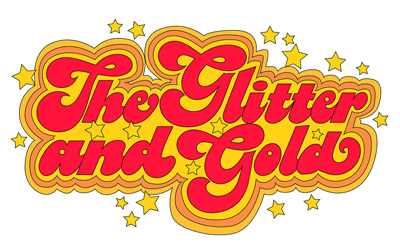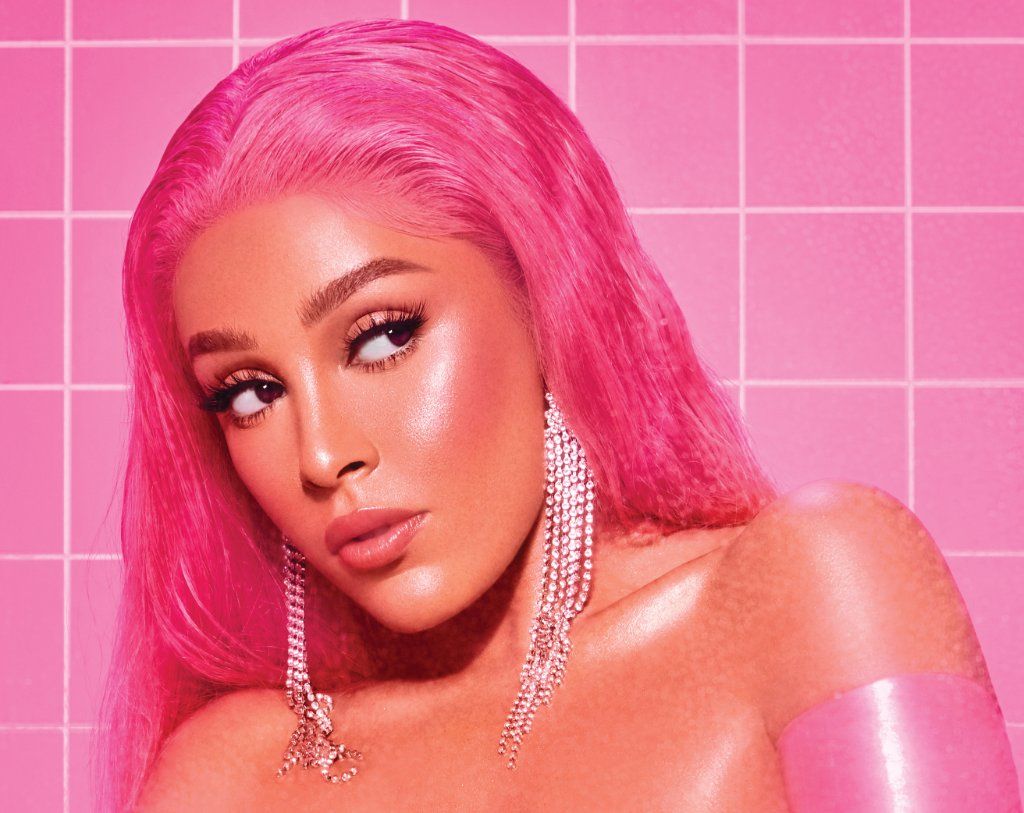In 2020 Gucci cast itself outside the pearly gates of runway fashion. In 2021 it returns to claim the throne. As the title Aria suggests, Gucci’s latest collection is both a spectacle and operatic solo statement.
Outside High Fashion’s Pearly Gates
Gucci started in 1921. Founder Guccio Giovanbattista Giacinto Dario Maria Guccmade began making travel bags for local horseriders and, later, Italian aristocrats. The business grew from there.
In 2021 Gucci, the world’s most popular fashion brand. It is also celebrating its 100th birthday. In a time of unprecedented change Gucci, under the guidance of creative director Alessandro Michele, is not content to be sitting still. 2020 saw Gucci begin its headline-making separation from the glittering fantasy of runway fashion. This was a fact Gucci made clear with its 2020 Epilogue collection. As the name suggested, Gucci had made a break from the past.
These changes were more than a matter of style. Gucci has embraced new shifts in consumer preferences. 2021 is an era of direct to consumer sales. People buy from brands, bands, corporations, influencers and creators online. Not, through stores. Fashion’s middlemen are becoming a thing of the past. And of all high fashion houses, Gucci has capitalised on this the most, operating more like eminent sportswear brands Nike or Adidas than a traditional fashion house.
Gucci Embraces High and Low Culture
Whether it is skateboards or NFTs, Gucci revels in low-culture. And yet it also maintains a strong link to the brand’s own past. It maintains its role as a luxury symbol with aloof and fantastic designs. (Albeit often with a street smart sensibility.) If Gucci’s playful approach to fashion seems too ambitious to be believed, this feeling is not far from the truth.
Gucci flys close to the sun. The brand’s director Allesandro Michelle has cited the visionary poetry of William Blake as an influence. And like Blake’s engravings, Gucci’s Aria collection takes spiritual flight. Its Floria Sigismondi-directed short film even goes so far as to depict models lifting off from Garden of Eden-like surroundings towards the heavens.
Tom Ford and Gucci’s Equestrian Roots
While Gucci’s 2020 collections explored a pastoral ’60s and ’70s fantasy worlds, Aria draws influence from the ’90s and Gucci’s equestrian roots. Returning to the runway Gucci now seeks to remake this culture in its own image. Aria pays homage to Gucci’s “golden era” under Tom Ford. This was the period in which the house rose to its current international prominence. Think decadent fashion shows, rake-thin Kate Moss models and little black dresses. Running contrary to popular street culture and athleisure trends – and perhaps as a reaction to it – nostalgia for this period is sweeping the tastemaking world. Rihanna and Kylie Jenner are but two prominent examples of pop culture icons frequently seen throwing back to the past with vintage ’90s bags and preloved luxury outfits.
Gucci too sails with the winds of the time. Of course, Alessandro Michele’s vintage embellishment is still strong. Gucci brings ’70s, botanical floral prints and velvet Edwardian by-way-of-the-1960s touches to many of these fall pieces. The brand’s logomania still runs rampant across the collection’s outfits. it is the glittering jewellery and slick black fashion esthetic, however, that leaps into the imagination most of all.
Which can seem paradoxical. More and more the elitist culture runaway fashion comes under scrutiny for its traditional insularity. This is, after all, a community that for many decades was notably willing to turn a blind eye to sexism, anorexia, racism, environmentalism, and any external change at all.
Gucci is More than a Brand
These are things Gucci spent 2020 proclaiming its departure from. A fact which the minds behind the Aria collection seem playfully aware of. This leads to the subtle twist behind this back-to-basics approach. Gucci seems not so much to be returning to the fold as claiming the best of this former reality for its own.
Such irreverence will no doubt please a younger audience while appealing to older buyers feeling adrift from Gucci’s recent collections. After all, it is this older demographic which can more readily buy Gucci, not simply love or look at pictures of it. The young simply will still have to settle for Gucci sneakers as NFTS.
Gucci is an idea, not just a product. A brand is a feeling, a personality and a big idea. Alessandro Michele seems keenly aware of this as he continues guiding the Florentine fashion house into the unprecedented territory where everything Gucci does is expected to be unexpected.

Gucci’s Balenciaga Hacking
This ties into another of Gucci’s fashion experiments qua stunts. That is, the Balenciaga “hacking”. Gucci’s partnership with rival fashion house Balenciaga to create a hybrid bag and clothing hints at the interesting possibility of more high fashion brand-on-brand collaborations.
Celebrity collaborations have become almost a monthly occurrence for Gucci and this is not even considering the brand’s relationship to its famous “friends”. A dominant force in fashion Gucci now seeks to absorb innovative and popular industry players as it also envelops the popular consciousness. “Man,” rapper Cardi B exclaims in 2021 hit single ‘Up’, “Balenciaga Bardi back and all these b****es f***ed.” A similar sentiment echoes here.
With so many celebrity friends, its hip hop credibility, several creative projects on the boil and a feature-length film in production, Gucci seems to be saturating culture. Though unlikely to be true, its presence growing larger than the fashion world itself. With Lady Gaga and John Carpenter‘s upcoming House of Gucci film arriving later this year, it would seem that we will already be receiving a heavy dose of archival fashion. Aria is a deft move to enlarge the public’s idea of Gucci is in 2021.
Gucci Goes Back to Black
Gucci’s doubling down on black. This was hinted at when Harry Styles appeared in a custom Gucci black suit at the 2021 Grammy Awards. Here it was clear Styles, accompanied by Blood Orange, was making a statement about the unjust death of Black American George Floyd and the tragedy of the resulting riots. Gucci’s conspicuously black collection is not so direct, though the prominence of black outfits, a greater than the typical presence of Black models and Lil Pump featuring soundtrack drops a heavy hint. An interesting maneuver, given Gucci’s vulnerability to criticisms of cultural appropriation.
On the other hand, this classic fashion throwback offers cosy nostalgia in the wake of the coronavirus pandemic. Aria, Michell perhaps too optimistically noted in the collection’s press conference, will launch the brand into the post-pandemic world. A beautiful dream, though it is vanity to predict the future.
Gucci Aria fits into the archival feeling of Gucci’s recent collections. It is a statement about the past, made in the present and, for the brand’s many competitors, hints at the future. The Hedi Slimane-headed Celine has only just revealed its own streetwear-leaning 2021 ambitions in the wake of the widespread popularity of Gucci’s full-blown monogram tracksuits. Now it seems Gucci has doubled back to the territory it has forced Slimane, and no doubt many competitors others, to recently abandon.
The Aria collection is a bid for everything. Gucci is not looking to govern the fashion world but total world domination. A perfectly befitting motive in an era of monomania. The brand’s maximalism is taken to task. It fires off at the conceptual level. And again it all ties back to power. Gucci has the power to lead, something it is all too willing to advertise.
A Vision of Ambition
With the ’90s and y2k nostalgia running rampant, Gucci Aria seems an obvious move in hindsight. “The mind is its own place and in itself,” the poet Milton once wrote, “can make a Heaven of Hell, a Hell of Heaven.” Gucci, it seems, can make itself anything it chooses.
Just so long as you believe it. Though those who fell in love with the future nostalgia of the brand’s most recent collections may feel their needs are better suited elsewhere. This is not to say Gucci will not return to these ideas. Aria is bid for traditional fashion.
At first, it seems contrary. Then it sinks in that this kind of irrelevant ransacking of fashion’s history is exactly in line with what the brand has been doing. A true vision of ambition, Aria makes a good case for Gucci as a spectacle. A cultural phenomenon, not a fashion house.
Gucci Aria is Myth in the Present Moment
Michelle has described the collection as, “The myth of foundation is reinhabited in the light of the present.” Aria presents Gucci as a force unto itself. External reality is only a secondary consideration. Or at least that is the way the fashion house would have you think. Aria seems less about building a brand, than Gucci taking flight.











